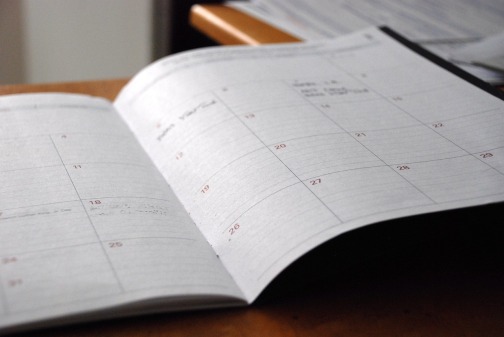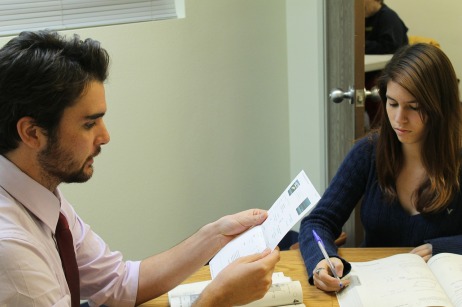
College is certainly different from high school, and it can feel like you are on your own, but never fear! Here are some tips for succeeding in those classes. While these are aimed more towards English classes, they can be applied to practically any class that you take. Hope you enjoy!
Quizlet:
Quizlet is a notecard site that is easy to use. It allows you to browse thousands of notecard decks regarding your class subject. You can also make your own. You can choose either of these options to then quiz yourself using traditional notecard flipping or playing games to learn the cards. It is a fun, easy way to study for that test with all the terms, or even apply them to notes!

Google Docs:
This one might seem obvious, but Google docs (or any other online word processor) is good for saving space on your laptop or computer. You can work on these anywhere, and it takes some of the pain of group projects out-of-the-way. This way the whole group can work on it at the same time and there’s no waiting for that one procrastinating group mate to get around to doing their part and emailing you the document. It is also useful for easy transport of documents, as you can just log in at any web browser and there your documents are! Just keep in mind Google Docs does not yet have the best grammar and spelling check. My advice to fix this is to download it and run it through Microsoft Word or reread it.

Audiobooks
You know those classes that require you to read half a book over a weekend? Not everyone has the time or patience to do that. Or perhaps the book is really hard to get into and understand. Many books today have an audiobook option than you can purchase. The audiobook plays on most devices and can be played while you are doing anything! Cleaning, driving, trying to ignore that one creep who doesn’t know ‘no’ when he hears it. Audiobooks help to focus, you can even try listening and reading along. There are settings to make the book read faster or slower too so it can match your speed. With your brain receiving two kinds of stimuli on one subject, you are then more likely to remember more of it. This one has saved me a couple of times when I lost track of an assignment.

Scheduling
Speaking of losing track of assignments, it is a very good idea to invest in a planner of some sort. Whether that be a calendar you can hang on the wall, a physical planner, or the calendar on your mobile device. Utilizing any of these can be vital to keeping track of all those due dates. I would suggest, once you’ve gotten all the syllabi from your professors, to look at what is due and when and make a note in your chosen planner/calendar. It may sound simple or stupid but your brain will actually remember more if you write it down physically. On mobile devices, you can set reminders to inform you a couple of hours or days before an assignment is due. Don’t forget to plug-in some snacks!
Proof-Reader:
Going along with scheduling try (and I do know how hard this can be sometimes, Netflix and Hulu are always calling!) to write your paper in advance. Then ask some of your friends if they will look it over for you. In most cases, your professor will read over the paper and give you suggestions as long as it is a couple of days before it is due. This can help you improve your grade and save you from 4am writing sessions trying to get an assignment done. In my experience, most friends will be willing to read it over at least once although be warned they will probably expect you to do it for them sometime too!

Tutors
Most colleges have free tutoring to all currently enrolled students! Check your school’s website or ask your professor where you might find them. The tutors are super helpful and easy to talk to, well generally, and they are usually students themselves! They can also help if you are unsure of how to write a paper or get it started. Check it out and save yourself some stress.
Music
When I say music, I am not talking about hardcore death metal or pop music. No, choose something that doesn’t have lyrics. This doesn’t have to be classical music, there are tons of different instrumental songs! If you aren’t familiar with any artists, then try searching for instrumental versions of your favorite songs on YouTube. Then create a playlist of this and play it. You can also opt to use Pandora (one station I found particularly helpful is called New Age Instrumental). There’s also movie and game soundtracks that can be played. Study to the beat of violin dubstep (one of my favorites is Lindsey Stirling). Intstrumental music doesn’t always have to be stiff and boring like many consider classical music to be. Play the music at a moderate or low-level, just enough to hear it but not get distracted. Then begin studying. The music will help your brain focus more on what you are working on.

Rewards
No one really likes to study, but we all have to do it at some point in our lives (except those that don’t. I’m always amazed at those who didn’t have to study for things). One way to make it seem like a smaller, more accomplishable task is to reward yourself. Tell yourself you will study for half an hour with no breaks. Then give yourself a break: some food, or a YouTube video, or five minutes to scroll through social media. This way, you are rewarding yourself for learning! It will also help you if you take a break from studying and then return to review the materials again to cement it in your brain.

Enviornmental Change
It will seriously help to get out of your room. Go to your school’s library, or to a park, or find the study areas that are found in most academic buildings. Being in a different surrounding can help deter distractions and keep focus. Working in the library always makes me want to get lots done, I attribute this feeling to the studious atmosphere of it all. I would advise finding a spot that is relatively quiet, because this also helps to lessen distractions.
These are just some of the tips out there for studying. I hope these helped, happy studying!